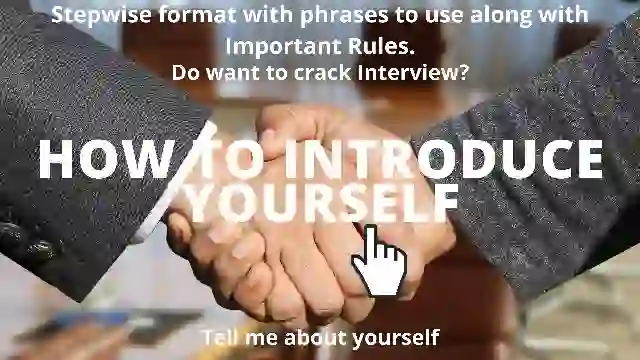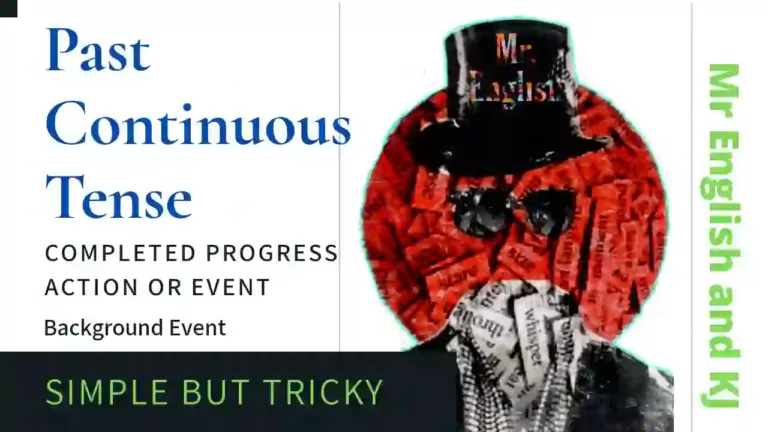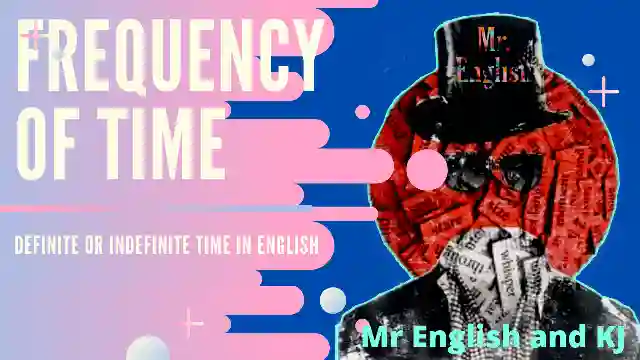Should
Should = We use ‘Should’ to express desire, advice, suggestion, opinion, obligation, duty, and possibility. We do not use “Shall” in past, we use “Should” in place of Shall.
Modals = Modal Verbs are all about the expressions but not the action.
“Should” use in Present, Past, and Future.
- Past = Past of Shall – “past possibility and prediction” and “Past Suggestion and advice.”
- Present = Desire, Advice, Suggestion, Opinion, Obligation, and Duty.
- Future = Possibility.
Should Rules
- Should + Verb 1st form = He, She, It, I, You, We, They, This, That, These, Those, Singular Noun, and Plural Nouns…
Should Format
- Affirmative = Subject + should + verb 1st form + other words.
- Negative = Subject + should + not + verb 1st form + other words.
should + not = shouldn’t.
- Simple Interro = Should + subject + verb 1st form + other words?
- Simple Interro Negative = Should + subject + not + verb 1st form + other words?
- Interrogative = Wh-family + should + subject + verb 1st form + other words?
- Interrogative Negative = Wh-family + should + subject + not + verb 1st form + other words?
Should Definition
1. Present = We use ‘Should’ to express desire, advice, suggestion, opinion, obligation, and, duty.
How do you identify “Should” as Present? =
- Whenever you make sentences about the Present, you know that you express a Present scenario. So, it is easy to know when you make any sentences.
- When someone makes sentences about ‘Should as Present,’ you can get it by understanding the situation in which they use the sentence. If they talk about any present scenario, you will understand it because they use all sentences in present.
- Desire or Ideal – We use “Should” to express desire or ideal. Ideal means – It is best to do in that situation.
e.g. –
- There should be more public hospitals. (desire or ideal = Means of the sentence – It’s my desire to have more public hospitals. Or It’s best to have more public hospitals)
- It is late at night. We should go back home. (ideal = Means of the sentence – It is best that we go back home.)
- You should find them before it’s too late. (desire or ideal = Means of the sentence – It is my desire for you to find them. Or It is best for you to find them.)
- Should I leave? (Ask for desire or ideal = Means of the sentence – Is anyone want/desire me to leave? Or Is it best if I leave?)
- What should you eat? (Ask for desire or ideal = Means of the sentence – What is your desire to eat? Or What is best for you to eat?)
- Advice, Suggestion, or Opinion – We use “Should” to express advice, suggestion, and opinion.
Advice vs Suggestion vs Opinion = These are quite similar but the difference is the directness and force. We understand the difference by the way we express our emotions in the sentence.
- Advice = To express less directness and force than Opinion. People give, take, or ask for advice.
- Suggestion = To express less directness and force than Advice. A suggestion is always a mild way to express our point of view.
- Opinion = To express more directness and force than Advice. People usually force opinions on others. People are offended sometimes when you express an opinion on them.
e.g. –
- Where should we go? (Ask for advice, suggestion, or opinion)
- Should I call her? (Ask for advice, suggestion, or opinion)
- He should start learning from now. (Advice, suggestion, or opinion)
- One should not waste the water. (Advice, suggestion, or opinion)
- One time in a day, a family should eat together. (Advice, suggestion, or opinion)
- Obligation or Duty – We use “Should” to express obligation and duty. Our obligation is our responsibility. Duty is always more superior than an obligation. The difference between duty or obligation is based on the way you express the sentence.
e.g. – We also use “Ought to” to express obligation or duty but “Ought to” is more formal and polite than “Should.”
- You should work hard in the office. (obligation or duty)
- We should not burn the garbage. (obligation or duty)
- Men should give equal rights to women. (obligation or duty)
- One should respect everyone. (obligation or duty)
- We all should donate. (obligation or duty)
2. Past = We use ‘Should’ to express old/changed possibilities and predictions in past. When we require to use ‘Shall’ in the past, we use ‘Should’ in place of Shall.
We use “Should” in the past of “Shall” but if we use “Would” in place of “Should” for Shall in past,” it will become a little less polite than “Should as a past of Shall.”
e.g. –
- Reported Speech Direct = I said, “I shall go.”
- Indirect = I said that I should go. (a little more polite possibility than Would)
- or I said that I would go. (a little less polite possibility than Should)
How do you identify “Should” as Past? =
- Whenever you make sentences about the Past, you know that you express a Past scenario. So, it is easy to know when you make any sentences.
- When someone makes sentences about ‘Should as Past,’ you can get it by understanding the situation in which they use the sentence. If they talk about any past scenario, you will understand it because they use all sentences in past and past words like yesterday, 3 days ago, etc.
- Past Possibility and Prediction – When we made a sentence to express a possibility or prediction in past time and we remind that same sentence now in the present that we made in past, we use Should.
For example = 31 December 2019: I make a sentence – I shall live my life happily. (Possibility or prediction)
1 January 2020: I reminded the sentence that I said in Past Time (31 December 2019) – I should live my life happily. (Past Possibility or prediction)
- We made a possibility or prediction in past about our future. When we remind the possibility we make in the past, we use ‘Should.’
e.g. –
- Reported Speech Direct = I said, “I shall pass the examination.”
- Indirect = I said that I should pass that examination. (past possibility or prediction)
- Reported Speech Direct = He said to me, “I shall work with this company.”
- Indirect = He told me that he should work with this company. (past possibility or prediction)
- Reported Speech Direct = They said, “We shall marry.”
- Indirect = They said that they should marry. (past possibility or prediction)
- Formal and Polite Past Suggestion or Advice – We use “Should” when we asked, gave, or took formal and polite suggestions or advice in past. When we have already asked, given, or taken suggestions in past and now we just remind the sentence, we use Should. We use “Should” as the past of “Shall and Should.”
- Shall/Should – To express suggestions or advice in the Present and Future.
- Should – To express suggestions or advice in the Past.
For example = 31 December 2019: I make a sentence – I ask him. Shall/Should I tell you how to use a phone?
1 January 2020: I reminded the sentence that I said in Past Time (31 December 2019) – I already asked him. Should I tell you how to use a phone? (a formal and polite suggestion or advice in past)
- We express suggestions in the past. When we remind the suggestions we make in the past, we use ‘Should.’
e.g. –
- Reported Speech Direct = I was confused. I said to them, “Where shall/should I go on vacation?”
- Indirect = I was confused. I asked them where I should go on vacation. (asked or took for suggestion or advice in past)
- Answer = They suggested that I should go to Goa. (gave suggestion)
- Or Answer = They advised that I should go to Goa. (gave advice)
- Reported Speech Direct = We said to them, “What shall/should we do to gain muscles?”
- Indirect = We asked them what we should do to gain muscles. (asked or took for suggestion or advice in past)
- Answer = We got suggested by them that we should consume those foods and do exercise. (gave suggestion)
- Or Answer = We got advised by them that we should consume those foods and do exercise. (gave advice)
3. Future = We use “Should” for possibility. When there are chances to happen or do something in the future, we use Should.
Should with I or We = strong possibility or there are more chances to do or happen. It is similia to “Shall” but stronger.
Should with He, she, it, you, they, noun, or nouns = possibility or there are chances to do or happen.
How do you identify “Should” as Future? =
- Whenever you make sentences about the Future, you know that you express a Future scenario. So, it is easy to know when you make any sentences.
- When someone makes sentences about ‘Should as Future,’ you can get it by understanding the situation in which they use the sentence. If they talk about any future scenario, you will understand it because they use all sentences in future and future words like tomorrow, after 5 days, etc.
- Future Possibility – We use “Should” when there is a chance to do or happen in the future. We express the future possibility, we are not sure about it.
e.g. –
- Don’t start the party! He should join us within a minute. (possibility)
- No problem. We should come with a new plan. (strong possibility)
- When should we not worry about the future? (ask for the strong possibility)
- Should she become a star someday? (ask for the possibility)
- You should join the Indian Army next time. (possibility)
Modals – Modals are all about the expressions that do not take place. When we use Modals, we only express, we do not do it. When we do, we use Tense.
Modals – can, could, may, might, should, would, will, shall, ought to, and must, etc.
Thanks for choosing us!


